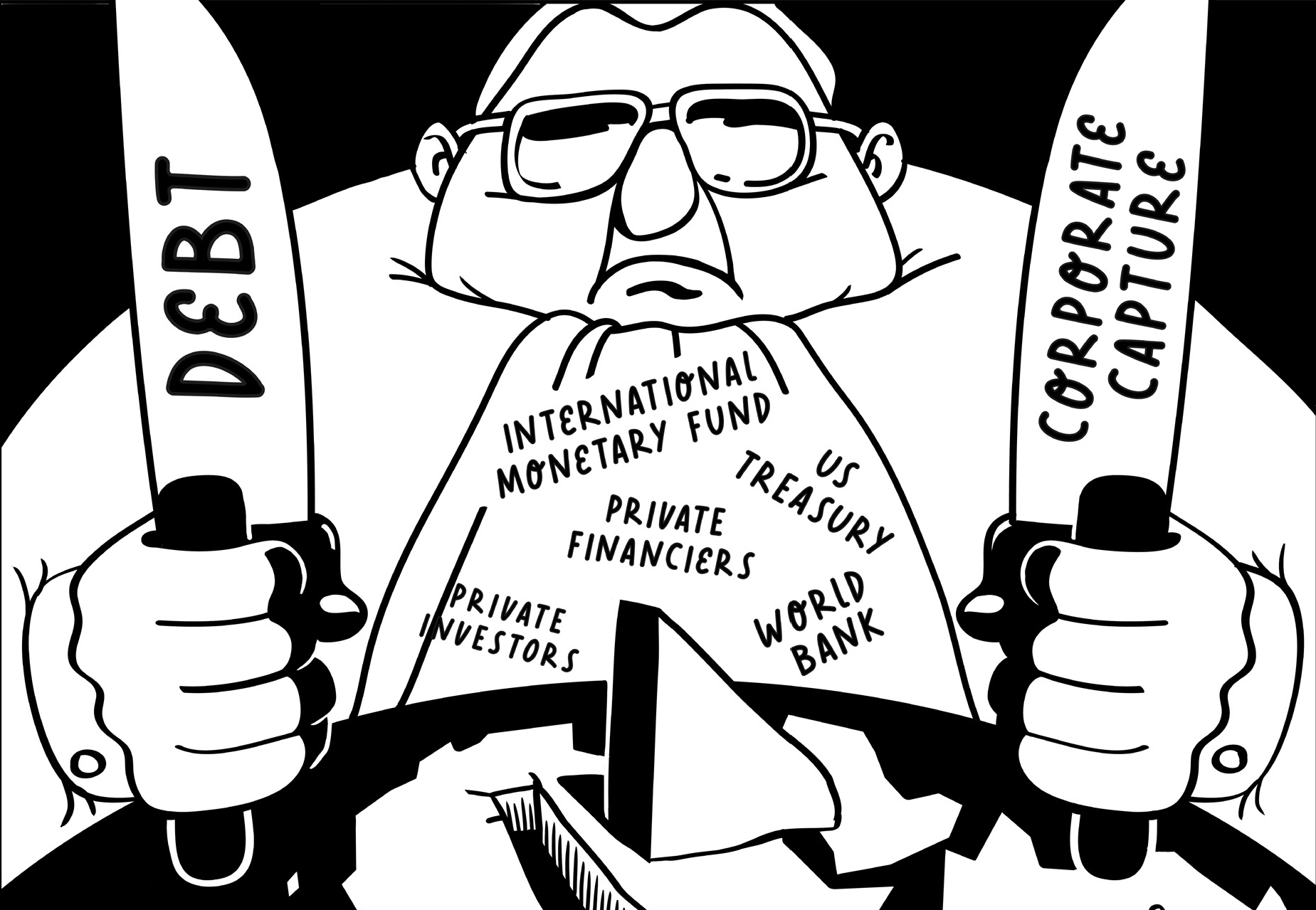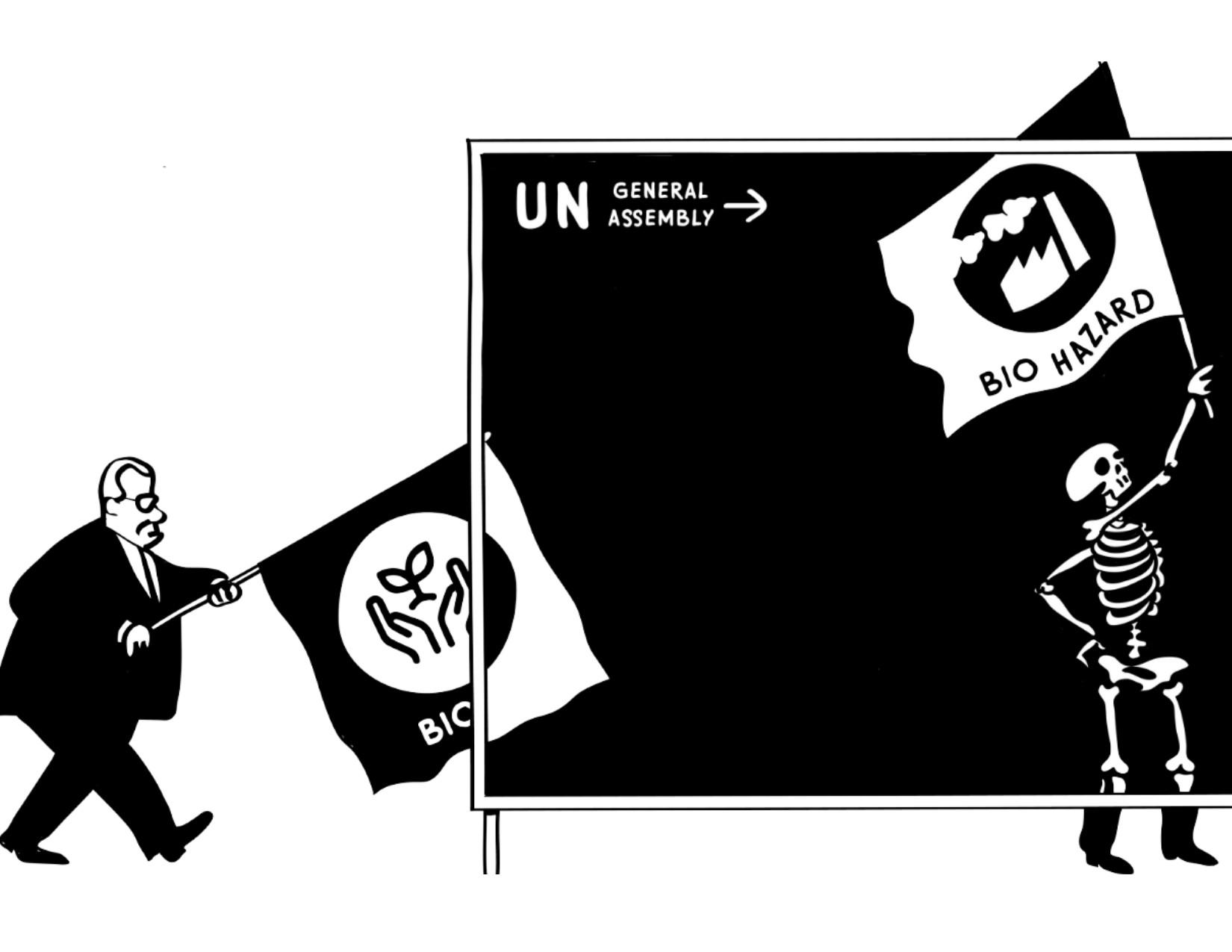Coinciding with the opening of the 46th session of the Human Rights Council (HRC) on 22 February 2021, ESCR-Net will launch the online comic series “The Power of the 99% to Stop Corporate Capture,” to shed light on the widespread global phenomenon of how corporations are capturing government institutions and decision-making, including in international spaces such as the United Nations.
“Corporate capture of government decision-making affects all of us in every country across the globe in similar ways – it results in privatization and public policy that prioritizes profit over people. This comic series helps us to collectively name and shame not only the ongoing corporate capture, but also some of the global corporations that are behind rigging our systems in country after country,” says Shayda Nacify, Senior Program Director at Corporate Accountability and one of the dozens of ESCR-Net members.
The release of the first episode during the opening session of the HRC, aims to draw international attention on what the Network defines as a “global trend” of corporations receiving 1 privileged access to multilateral decision-making spaces, which results in states prioritizing corporate elites in decisions instead of the human rights of the 100% of the world’s population.
The series is part of a broader advocacy strategy that ESCR-Net members have been collectively developing over the last 15 years. ESCR-Net has been central to mobilizing global advocacy for an international treaty to strengthen corporate accountability for human rights abuses and violations. However, members have repetitively denounced that the treaty process, currently being negotiated in the United Nations, is “threatened by corporate capture”, often through the inclusion of corporate lobbyists and associations, such as the International Organization of Employers (IOE), the International Chamber of Commerce (ICC), and the United States Council for International Business (USCIB), in consultations on the treaty despite the conflict of interest — allowing them to exert influence on a binding treaty that is meant to hold them accountable



